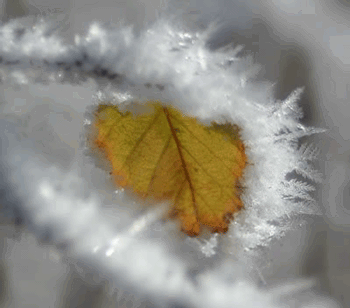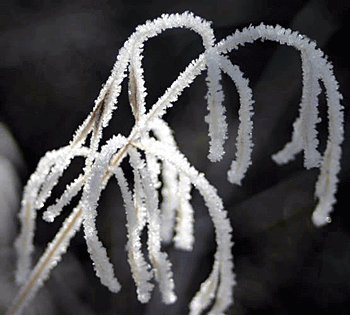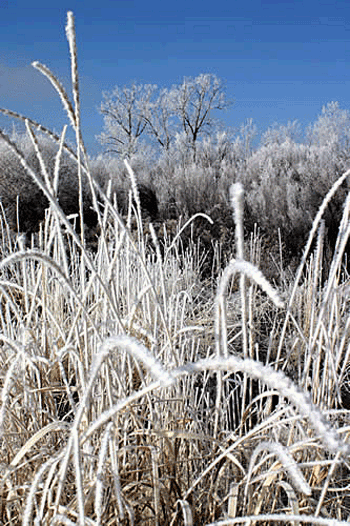pogo-, pogono-, -pogon
(Greek: beard; referring to a beard or beard-like structures)
2. Pogonip, or "ice fog", results in a phenomenon called "hoarfrost", which is a deposit of interlocking ice crystals on objects exposed to cold, foggy air. Dazzling winter scenes are revealed as tree limbs, leaves, fence wires are coated with the ice.
Is it possible that the pogo in "pogonip" refers to "beard"? Take a look at these pictures and see if you think they resemble hair-like structures resembling whiskers or a beard.
Extensive research can't confirm such a view, but to state that "pogonip" comes from an American Indian word, pakenappeh which means "white death", doesn't make any linguistic sense. Etymologically, what connection does the Greek pogo element have to do with the Native Indian pakenappeh?



2. A barber who is a specialist in styling beards.
A genus of harvester ants that are economically important in agricultural areas of the United States and Mexico because of the numerous low, bare mounds they construct, which reduce vegetation for grazing animals.
They have a painful bite which can be seriously poisonous when they attack animals or humans in large numbers. Some species serve as intermediate hosts of helminths. It is believed that various pathogens may also be passively carried by these ants.
2. Pogonophorans have tentacles that are often featherlike, or like hairs of a beard, which are attached to the head region or anterior end. An intestine is present in the embryonic stage but it disappears as the animal matures. 3. A phylum of wormlike, sedentary marine animals that lack a digestive tract, possess a body cavity (coelom), and bear one to many fringed tentacles at the anterior end.
4. Commonly called "beard worms" because of their tentacles, pogonophores are long and slender, ranging in length from four to twelve inches, with a diameter up to one-tenth of an inch in larger species.


